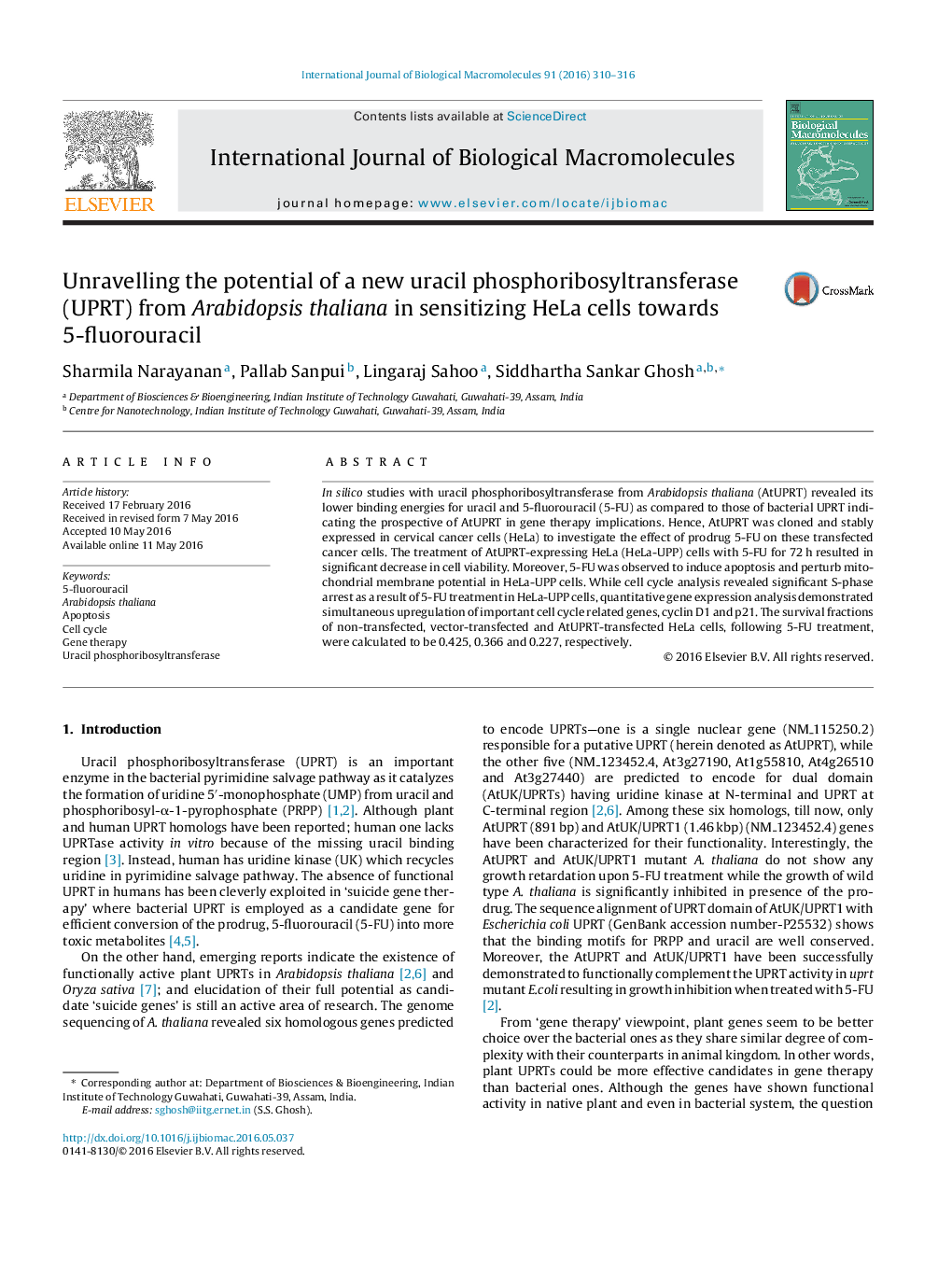| Article ID | Journal | Published Year | Pages | File Type |
|---|---|---|---|---|
| 1985632 | International Journal of Biological Macromolecules | 2016 | 7 Pages |
•First report of successful cloning and expression of A. thaliana UPRT in human cancer (HeLa) cells.•Expression of AtUPRT efficiently sensitized HeLa cells towards 5-FU with observed IC50 value of 5.2 μM.•5-FU induced apoptosis and associated damage in mitochondrial membrane in HeLa-AtUPRT cells.•5-FU treatment resulted S phase arrest in HeLa-AtUPRT cells involving changes in relative expression of cyclin D1 and p21.
In silico studies with uracil phosphoribosyltransferase from Arabidopsis thaliana (AtUPRT) revealed its lower binding energies for uracil and 5-fluorouracil (5-FU) as compared to those of bacterial UPRT indicating the prospective of AtUPRT in gene therapy implications. Hence, AtUPRT was cloned and stably expressed in cervical cancer cells (HeLa) to investigate the effect of prodrug 5-FU on these transfected cancer cells. The treatment of AtUPRT-expressing HeLa (HeLa-UPP) cells with 5-FU for 72 h resulted in significant decrease in cell viability. Moreover, 5-FU was observed to induce apoptosis and perturb mitochondrial membrane potential in HeLa-UPP cells. While cell cycle analysis revealed significant S-phase arrest as a result of 5-FU treatment in HeLa-UPP cells, quantitative gene expression analysis demonstrated simultaneous upregulation of important cell cycle related genes, cyclin D1 and p21. The survival fractions of non-transfected, vector-transfected and AtUPRT-transfected HeLa cells, following 5-FU treatment, were calculated to be 0.425, 0.366 and 0.227, respectively.
